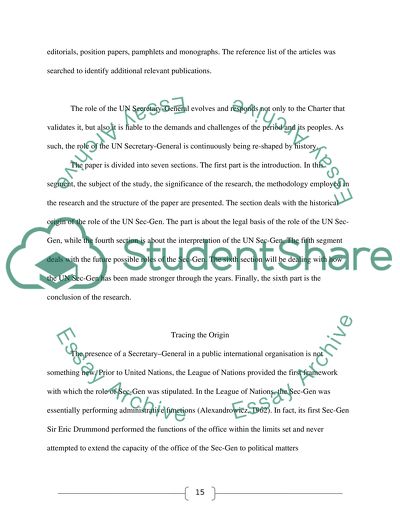Cite this document
(“The Role of the UN Secretary Essay Example | Topics and Well Written Essays - 3500 words”, n.d.)
Retrieved from https://studentshare.org/sociology/1419556-the-role-of-the-un-secretary
Retrieved from https://studentshare.org/sociology/1419556-the-role-of-the-un-secretary
(The Role of the UN Secretary Essay Example | Topics and Well Written Essays - 3500 Words)
https://studentshare.org/sociology/1419556-the-role-of-the-un-secretary.
https://studentshare.org/sociology/1419556-the-role-of-the-un-secretary.
“The Role of the UN Secretary Essay Example | Topics and Well Written Essays - 3500 Words”, n.d. https://studentshare.org/sociology/1419556-the-role-of-the-un-secretary.


